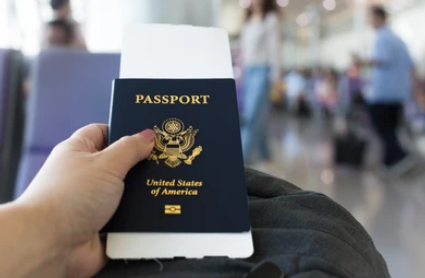US Passport Drops Out of Global Top 10: A Symbol of Shifting Power and Global Access

The United States of America’s passport has fallen out of the world’s Top 10 most powerful travel documents for the first time in nearly two decades. An apparent symbolic blow to America’s global image of mobility and influence.
According to the Henley Passport Index, which ranks countries by the number of destinations their citizens can enter without a visa or with visa-on-arrival, the US passport now sits around 11th place, tied with Canada and Hungary. It marks a vertical decline from 2014, when the American passport was ranked number 1 and opened doors to more than 170 destinations.
![]()
![]()
The slip reflects not just bureaucratic changes but a wider story of global realignment. In 2025 alone, the US lost visa-free access to Brazil, Papua New Guinea, and Myanmar. These are countries that tightened entry requirements over issues of reciprocity and diplomacy. Meanwhile, nations like Japan, Singapore, France and Spain have expanded their visa-free networks, boosting their own citizens’ global reach.
Behind the rankings lie a depictment of human and social implications. In regards to the American families, the change means added costs, laboring over paperwork and barriers to study, work or leisure abroad. Business travelers face longer processing times and greater uncertainty. A recap that global mobility is increasingly being reshaped by shifting alliances rather than status alone.
Culturally, the decline highlights a subtle erosion of the US’s “soft power”. The American passport was once a symbol of openness and privilege, offering citizens a sense of freedom that few others enjoyed. Her slip from the top tier now, mirrors a broader trend where influence is no longer measured solely by military or economic strength, but by the ease with which people can cross borders.
![]()
Politically predictors say the fall insinuates Washington’s diplomatic inertia in securing reciprocal visa deals, especially compared to the more proactive strategies of the European Union and Asia-Pacific powers. As global travel rebounds after years of disruption, mobility has become a form of leverage and in that race, the US is no longer leading.
The change may seem minor the ordinary Americans, as it reflects an indepth query about the country’s place in a more multipolar world. Perhaps one’s question would be to ask – if the Americans privilege to travel easily is now taken for granted by her leadership, or has it become another casualty of a shifting global influence?








